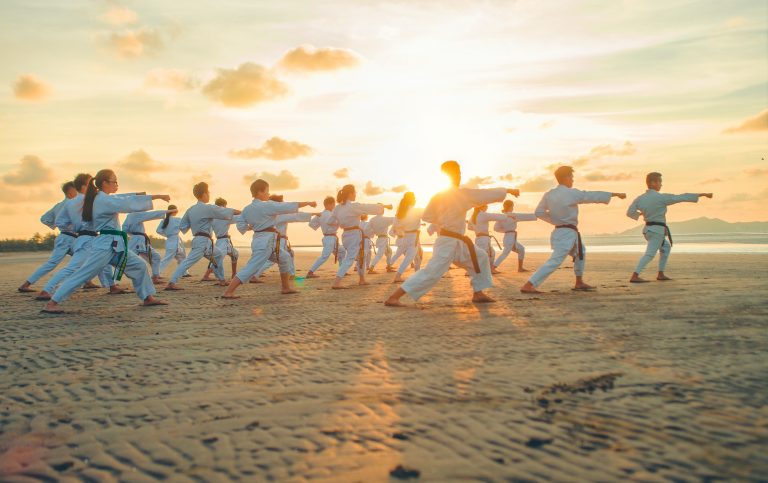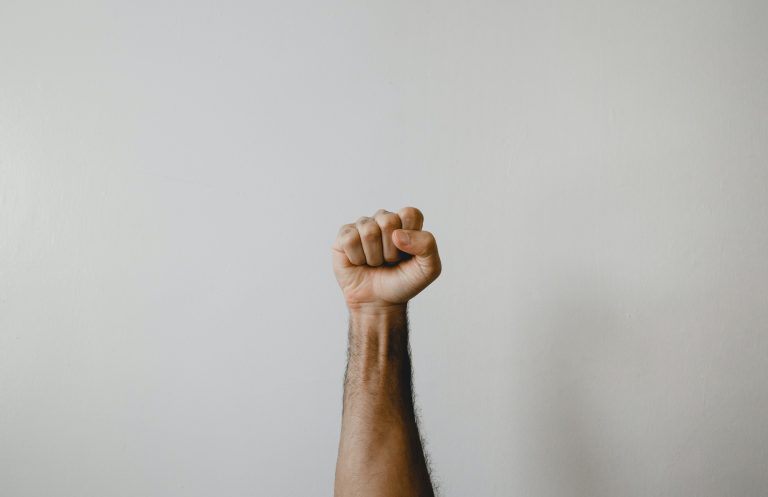Karate: What is the right attitude?
Karate is an ancient martial art that is practiced all over the world. Apart from the physical benefits, Karate also provides numerous mental and emotional benefits. To become a great Karate practitioner, you need to have the right attitude.
The right attitude in Karate
When you practice Karate, your attitude plays a critical role in your success. Having the right attitude means that you are ready to embrace the principles and values of Karate. These principles include respect, discipline, perseverance, and self-control. Here are some ways to cultivate the right attitude in Karate:
Respect
One of the most essential principles in Karate is respect. You should show respect to your opponents, your fellow karate practitioners, and yourself. In Karate, respect means acknowledging the worth of others and treating them with dignity. Respect also means accepting your limitations and acknowledging your strengths.
Discipline
Discipline is critical in Karate. You need to be disciplined in your practice, training, and daily life. In Karate, discipline means setting specific goals and focusing on achieving them. It also means following the rules and regulations of your dojo, respecting your sensei, and being punctual.
Perseverance
Perseverance is another crucial principle in Karate. You should never give up, even when the training is difficult or when progress seems slow. A dedicated karate practitioner perseveres through the challenges, stays focused on their goals, and works hard every day to improve their skills.
Self-Control
Self-control is essential to becoming a great Karate practitioner. You must learn to control your emotions, such as fear, anger, and frustration. Self-Control is also important during matches, as you need to stay calm and focused to perform your best.
The Benefits of having the right attitude in Karate
Having the right attitude in Karate comes with many benefits. These benefits include:
- Better Focus and Concentration: By focusing on the principles and values of Karate, a practitioner can also develop better focus and concentration techniques.
- Improved Self-Awareness: Practicing Karate can help you understand yourself better, including your abilities, strengths, and weaknesses.
- Increased Self-Confidence: A dedicated karate practitioner learns to face their fears, confront their limitations, and push their boundaries, leading to increased self-confidence.
- Better Physical Endurance: Practicing Karate requires a lot of physical endurance. A practitioner who has cultivated the right attitude will have the strength and stamina to endure and persevere through long practices and matches.
- Improved Overall Mental and Physical Health: Practicing Karate can significantly improve overall mental and physical health.
Conclusion
Karate provides many mental and physical benefits, but it all starts with having the right attitude. A dedicated karate practitioner must cultivate respect, discipline, perseverance, and self-control in their practice and daily life. With the right attitude, a karate practitioner can achieve outstanding results and reap the benefits of Karate.
What is the Right Attitude in Karate?
Karate is an ancient martial art that originated in Okinawa, Japan. It is a form of self-defense that teaches practitioners to use their bodies as weapons. In addition to physical training, karate also emphasizes mental discipline, respect, and humility. Throughout the years, people have had many questions regarding the right attitude while practicing karate. In this post, we will answer some of the most frequently asked questions about the right attitude in karate.
What is the importance of attitude in Karate?
Attitude is of utmost importance in karate as it is in many other martial arts. Karate training influences not only your physical strength and ability but also your mental and emotional resilience. Karate training teaches practitioners to cultivate a humble yet confident attitude, develop a strong work ethic, and take on a positive approach to life. The right attitude allows practitioners to perform at their best level and to learn from their successes and failures.
What are the essential attitudes that a karateka should possess?
Karatekas or practitioners of karate should possess various attitudes that are essential to becoming successful in their training. These attitudes include but are not limited to discipline, respect, perseverance, humility, and concentration.
Discipline – Karate training requires a great degree of discipline. Practitioners must be committed to training regularly and consistently.
Respect – Karate is a martial art that teaches respect for oneself, others, and the environment. Karateka must learn to respect their instructor, fellow students, and the traditions of karate.
Perseverance – Learning karate takes time, effort, and determination. Karate includes challenges that one needs to overcome to reach their goals.
Humility – Despite skill level or rank, it is vital to maintain humility in karate. Practitioners must show respect for others and continuously improve themselves
Concentration – Karate practitioners must be focused and present in the moment. Concentrating on training and techniques helps the mind and body work together.
How can one develop the right attitude in Karate?
Developing the right attitude in karate takes time, effort, and perseverance. Here are some helpful tips for cultivating the right attitude in karate:
Learn from your seniors – Seek guidance from senior students and instructors who can teach you the right attitude and behavior in karate.
Set achievable goals – Set specific goals that will help you develop a positive attitude and work ethic.
Stay positive – Maintain a positive attitude even when faced with challenges, failures, or setbacks.
Focus on technique – Karate training requires concentration on techniques to reach a high level of skill. Focusing on technique helps the mind stay active and engaged.
Sustain physical and mental fitness – Physical and mental strength is essential in karate, and a sound mind and body motivate a warrior’s spirit to continue the training.
Why is the right attitude important in sparring?
Sparring is an essential part of karate training, and the right attitude is essential in sparring. The right attitude allows a practitioner to remain humble, courteous, and respectful towards their sparring partner. The right attitude in sparring emphasizes promoting healthy competition and training rather than a focus on winning at all costs. The attitude in sparring sets an example for other karatekas to follow and builds a positive and friendly environment.
What are the benefits of maintaining the right attitude in Karate?
Maintaining the right attitude in karate is beneficial for practitioners in various ways, including:
Improved physical and mental fitness – Maintaining a positive attitude in karate helps to keep practitioners physically and mentally fit.
Increased focus and concentration – Maintaining the right attitude helps to focus on training and techniques, which helps the mind stay active and engaged.
Better relationship-building ability – The right attitude in karate helps to develop better relationships with fellow students and instructors.
Greater respect for oneself and others – The right attitude teaches respect for yourself, fellow karatekas, and the wider community.
In conclusion, the right attitude is essential in karate, and it should not be underestimated under any circumstance. Practitioners must cultivate various attitudes, including discipline, respect, perseverance, humility, and concentration. Developing the right attitude in karate requires patience, determination, and perseverance. The benefits of maintaining the right attitude apply both during and beyond karate training.
Inhaltsverzeichnis





